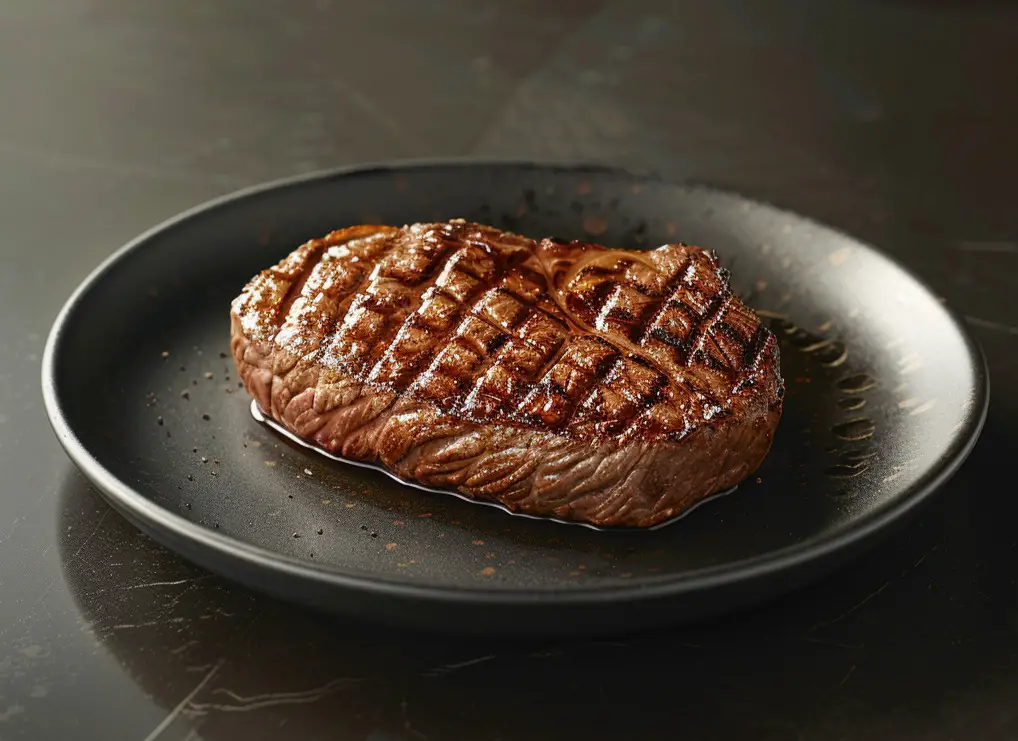
The no carb diet has increasingly emerged as a popular choice among those looking to make significant dietary changes. But what exactly does it mean to follow a no carb diet? Simply put, it’s a way of eating that eliminates carbohydrates entirely from your diet, focusing instead on foods that are high in protein and fats. Unlike its cousins, the low-carb and keto diets, which limit carb intake to varying degrees, a no carb diet aims for zero carbohydrate consumption.
The Appeal of Going Carb-Free
The no carb diet has garnered attention for several reasons, not least because of its potential for rapid weight loss. However, the benefits reported by its followers extend far beyond shedding pounds:
- Weight Loss: By cutting out carbs, the body is forced to burn fat for fuel, leading to weight loss.
- Stabilised Blood Sugar Levels: Without carbs, there’s no sugar spike, meaning blood sugar levels remain more stable throughout the day.
- Increased Energy: Many report higher energy levels and greater mental clarity when cutting out carbs.
- Health Benefits: There’s evidence to suggest that a no carb diet can reduce the risk factors associated with heart disease and type 2 diabetes.
Navigating the No Carb Landscape
Embarking on a no carb diet can seem daunting at first. After all, carbs are a staple in many diets, found in everything from fruits and vegetables to bread and pasta. However, with a bit of knowledge and preparation, navigating the no carb landscape can be both manageable and rewarding. This introduction will guide you through the basics of a no carb diet, including what to eat, the benefits you might experience, and how to overcome common challenges. Whether you’re looking to lose weight, improve your health, or simply explore a new way of eating, understanding the no carb diet is the first step on your journey.
What Constitutes a No Carb Diet?
Embarking on a no carb diet journey is a bold step towards transforming your eating habits. This diet is all about eliminating carbohydrates entirely from your meals, focusing instead on foods that are rich in proteins and fats. But what exactly does a no carb diet entail, and how does it differ from other low-carb diets? Let’s delve into the specifics.
Defining a No Carb Diet
A no carb diet is exactly what it sounds like: a diet plan that aims to cut out carbohydrates completely. Unlike the keto diet, which allows for a small amount of carbs, or low-carb diets that limit carb intake to a certain percentage, the no carb diet strives for zero carb consumption. This means:
- Prioritising Protein and Fats: The diet focuses on high-protein and high-fat foods, such as meats, fish, eggs, cheese, and certain fats like butter and oils.
- Avoiding Sugars and Starches: All forms of sugars and starches, including fruits, most vegetables, grains, and legumes, are off the table.
- Hydration is Key: Without carbs, your body will need more water to stay hydrated.
Foods to Enjoy
On a no carb diet, your plate will look significantly different. Here’s a snapshot of what you can enjoy:
- Meats: Beef, pork, lamb, and game meats are all excellent choices.
- Poultry: Chicken, turkey, and duck will be your go-to options.
- Fish and Seafood: Salmon, trout, mackerel, and shellfish are not only carb-free but also rich in omega-3 fatty acids.
- Eggs: A versatile protein source that can be cooked in numerous ways.
- High-Fat Dairy: Cheese, butter, and cream are on the menu, offering both flavour and fat content.
- Fats and Oils: Olive oil, coconut oil, and avocado oil are great for cooking and adding to salads.
Foods to Avoid
Navigating a no carb diet means steering clear of:
- All Sugars: This includes white sugar, brown sugar, honey, maple syrup, and agave.
- Grains: Wheat, rice, oats, and barley are completely out.
- Most Fruits: Except for a few berries in minimal amounts, most fruits are too high in carbs.
- Starchy Vegetables: Potatoes, sweet potatoes, and other root vegetables are to be avoided.
- Legumes: Beans, lentils, and peas are off-limits due to their carb content.
Common Misconceptions
It’s easy to confuse a no carb diet with other low-carb diets, but the distinction lies in the total elimination of carbs. This approach is not about moderation; it’s about exclusion. It’s also worth noting that a no carb diet doesn’t mean an all-meat diet. Vegetables that are low in carbs, such as leafy greens, are encouraged for their nutritional value.
Benefits of a No Carb Diet
Embarking on a no carb diet can seem like a daunting endeavour, but it’s one that comes with a plethora of potential health benefits. From weight loss to improved metabolic health, the advantages of cutting carbs completely can be significant. Let’s explore the myriad ways a no carb diet might just be the transformative lifestyle change you’ve been searching for.
Weight Loss and Fat Reduction
One of the most compelling reasons people opt for a no carb diet is its potential for rapid weight loss.
- Efficient Fat Burning: By eliminating carbs, your body switches to burning fat for fuel in a process known as ketosis, leading to efficient fat loss.
- Reduced Appetite: High-protein and high-fat diets have been shown to reduce appetite and eliminate cravings, making it easier to consume fewer calories without feeling hungry.
Enhanced Blood Sugar and Insulin Levels
For those grappling with insulin resistance or diabetes, a no carb diet can be particularly beneficial.
- Stabilised Blood Sugar Levels: Without carbohydrates, which are broken down into glucose, blood sugar levels remain more stable throughout the day.
- Improved Insulin Sensitivity: Lowering carb intake can decrease insulin levels and improve insulin sensitivity, which is crucial for individuals with type 2 diabetes or metabolic syndrome.
Boost in Energy and Mental Clarity
Many adherents of the no carb diet report experiencing a significant boost in energy and mental clarity.
- Consistent Energy Levels: Without the blood sugar spikes and dips associated with carb consumption, you may find your energy levels are more stable throughout the day.
- Improved Focus: Some people report enhanced mental clarity and focus, possibly due to the stabilising effect on blood sugar and the body’s use of ketones as a brain fuel.
Potential Reduction in Heart Disease Risk Factors
While it might seem counterintuitive given the high fat intake, a no carb diet can positively affect several risk factors for heart disease.
- Improved Lipid Profile: Some individuals see a reduction in triglycerides and an increase in HDL (good) cholesterol levels.
- Lower Blood Pressure: Reducing carbs can also lead to a decrease in blood pressure, further lowering the risk of heart disease.
Considerations and How to Maximise Benefits
While the benefits of a no carb diet are compelling, it’s crucial to approach it thoughtfully to maximise health gains and minimise potential risks.
- Nutrient-Rich Foods: Focus on consuming a variety of nutrient-dense foods to ensure you’re getting a broad spectrum of vitamins and minerals.
- Hydration and Electrolytes: Pay attention to hydration and electrolyte balance, as low carb diets can lead to changes in fluid and mineral balance.
- Consultation with Healthcare Providers: It’s advisable to consult with a healthcare provider before starting a no carb diet, especially for individuals with pre-existing health conditions.
Potential Challenges and Considerations of a No Carb Diet
While the no carb diet can offer significant health benefits, it’s not without its challenges and considerations. Transitioning to a diet devoid of carbohydrates requires careful planning and awareness of potential pitfalls. Let’s navigate through some of the hurdles you might face and how to address them effectively.
Nutritional Deficiencies
A strict no carb diet can lead to nutritional deficiencies if not properly managed.
- Limited Fruit and Vegetable Intake: By excluding carbs, you might miss out on the essential vitamins, minerals, and fibre found in fruits and vegetables.
- Risk of Deficiencies: There’s a potential risk of deficiencies in nutrients like Vitamin C, potassium, and magnesium.
- Solution: Incorporate nutrient-dense, low-carb vegetables and consider supplementation under the guidance of a healthcare professional.
Managing Social Situations
Social gatherings and dining out can pose challenges for those on a no carb diet.
- Limited Food Choices: Finding suitable food options at restaurants or social events can be difficult.
- Peer Pressure: Explaining your dietary choices to friends and family can sometimes lead to uncomfortable situations.
- Solution: Plan ahead by reviewing menus online, suggesting keto-friendly restaurants, or bringing your own dishes to social events.
Initial Side Effects
The transition to a no carb diet can be accompanied by a range of initial side effects, often referred to as the “keto flu.”
Symptoms: These can include headaches, fatigue, dizziness, and irritability.
Cause: These symptoms are typically due to electrolyte imbalances and the body’s adjustment to using fat for fuel.
Solution: Stay hydrated, increase your intake of salt and other electrolytes, and ensure you’re eating enough fat and calories during the transition.
Long-Term Sustainability
Maintaining a no carb diet over the long term can be challenging for some individuals.
Restrictive Nature: The diet’s restrictive nature can lead to boredom or a sense of deprivation.
Lifestyle Fit: It may not be suitable for everyone, depending on personal health conditions, lifestyle, and dietary preferences.
Solution: Introduce variety within the allowed foods, consider a more flexible low-carb diet if needed, and consult with a dietitian for personalised advice.
Physical Performance
The impact of a no carb diet on physical performance can vary.
Initial Decrease in Performance: Some individuals may experience a temporary decrease in endurance and strength.
Adaptation Period: The body typically adapts to using fat for fuel, which can eventually restore or even improve performance.
Solution: Allow time for your body to adapt, and consider timing your intake of allowed carbs around workouts if necessary.
How to Start a No Carb Diet
Embarking on a no carb diet is a significant lifestyle change that promises numerous health benefits. However, starting can be daunting without the right guidance. This guide aims to simplify the process, ensuring you’re well-equipped to begin your no carb journey with confidence.
Understanding the Basics
Before diving in, it’s crucial to grasp what a no carb diet entails. This diet eliminates all carbohydrate intake, focusing instead on foods high in protein and fats. Understanding this fundamental principle is the first step toward a successful dietary overhaul.
- Research: Familiarise yourself with the foods you can eat and those you should avoid.
- Goals: Set clear, achievable goals for what you hope to accomplish with this diet.
Clearing the Pantry
A clean slate is essential for starting a no carb diet. This means:
- Removing Temptations: Clear out all carb-rich foods from your pantry and fridge, including bread, pasta, sugary snacks, and cereals.
- Stocking Up: Fill your kitchen with no carb essentials like meats, eggs, high-fat dairy, and low-carb vegetables.
Planning Your Meals
Meal planning is your best friend on a no carb diet. It prevents last-minute decisions that could lead to carb consumption.
- Create a Meal Plan: Plan your meals for the week, ensuring they fit the no carb criteria.
- Prepare in Advance: Consider preparing meals in advance to save time and reduce the temptation to stray from your diet.
Reading Food Labels
Understanding food labels is crucial on a no carb diet. Even foods marketed as “low carb” can contain hidden sugars and starches.
- Check for Carbs: Learn to identify different names for sugars and starches on ingredient lists.
- Mind the Serving Size: Pay attention to serving sizes to ensure you’re not inadvertently consuming carbs.
Staying Hydrated
Hydration is particularly important on a no carb diet, as your body adjusts to a different fuel source.
- Water is Key: Aim to drink at least 2 litres of water daily.
- Electrolytes: Consider supplementing with electrolytes to prevent imbalances that can occur when starting a no carb diet.
Managing Social Situations
Social gatherings and dining out can pose challenges on a no carb diet.
- Plan Ahead: If possible, look at restaurant menus in advance to identify no carb options.
- Communicate: Don’t hesitate to explain your dietary restrictions to friends or restaurant staff.
Listening to Your Body
Every individual’s response to a no carb diet will differ. It’s important to listen to your body and adjust as needed.
- Monitor Your Health: Pay attention to how you feel, both physically and mentally, as you transition to a no carb diet.
- Consult a Professional: If you have any concerns or health issues, consult a healthcare professional for personalised advice.
Embracing the Lifestyle
A no carb diet is more than just a temporary diet; for many, it becomes a sustainable lifestyle.
- Be Patient: It may take time for your body to adjust to this new way of eating.
- Stay Informed: Continue to educate yourself about the no carb lifestyle and how to maintain it in the long term.
Starting a no carb diet can be a transformative journey towards better health and well-being. By preparing adequately, planning your meals, and staying informed, you can navigate the challenges and enjoy the benefits of this dietary approach. Remember, the key to success is consistency, patience, and a willingness to learn and adapt.
Common Myths and Misconceptions about a Protein Diet with No Carbs
Embarking on a protein diet with no carbs can often feel like navigating a minefield of myths and misconceptions. With so much conflicting information out there, it’s easy to become overwhelmed. Let’s debunk some of the most common myths and set the record straight, ensuring you can make informed decisions about your dietary choices.
Myth 1: It’s All Meat and Nothing Else
One of the biggest misconceptions about a protein diet with no carbs is that it consists solely of meat.
- The Reality: While meat is a staple, a well-rounded no carb diet includes a variety of other foods. These include high-fat dairy products, certain nuts and seeds, and low-carb vegetables, which are crucial for providing essential vitamins and minerals.
Myth 2: You’ll Always Feel Tired
Many believe that cutting out carbs, our primary energy source, will lead to constant fatigue.
- The Reality: After an initial adjustment period, many people report higher energy levels and more stable energy throughout the day. This is due to the body becoming more efficient at burning fat for fuel, a process known as ketosis.
Myth 3: It’s Bad for Your Heart
The high intake of fats on a no carb diet raises concerns about heart health for some.
- The Reality: Studies have shown that a protein diet with no carbs can actually improve heart health by reducing factors such as body fat, blood pressure, and levels of triglycerides. Always choose healthy fats and lean proteins to maximise benefits.
Myth 4: It Leads to Nutritional Deficiencies
Critics argue that eliminating carbs results in a lack of essential nutrients.
- The Reality: By carefully selecting a variety of foods and possibly supplementing certain vitamins and minerals, you can avoid nutritional deficiencies. Focus on nutrient-dense foods like leafy greens, avocados, and berries (in moderation).
Myth 5: It’s a Quick Fix for Weight Loss
Some view a protein diet with no carbs as a rapid weight loss solution without considering its long-term implications.
- The Reality: While initial weight loss can be significant, the no carb diet is best approached as a long-term lifestyle change rather than a quick fix. Sustainable weight loss and health improvements require commitment and consistency.
Myth 6: You Can Eat Unlimited Protein
The idea that you can consume unlimited amounts of protein is another common misconception.
- The Reality: It’s important to balance protein intake with healthy fats to ensure your body enters and remains in ketosis. Overconsumption of protein can lead to it being converted into glucose, which could take you out of ketosis.
Conclusion
A protein diet with no carbs is surrounded by myths and misconceptions, but understanding the facts can help you navigate these waters more effectively. By focusing on a balanced, nutrient-rich approach and listening to your body, you can enjoy the benefits of this diet while maintaining your health and well-being. Remember, consulting with a healthcare professional before making significant dietary changes is always advisable to ensure it’s the right choice for your individual health needs.




